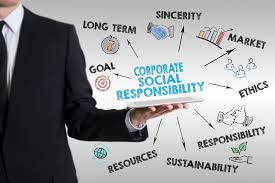Accountability is the obligation to provide proof of having fulfilled one’s responsibility. In education, teachers and school administrators have traditionally made students accountable for their whereabouts, for completion of homework assignments and for their work and behavior in class and school. More recently, however, students, parents and state authorities have started holding teachers and school officials responsible for their effectiveness as teachers and administrators.
At the student level, accountability is usually taught through “cooperative learning,” in which students are divided into several groups. Each group is then responsible for one element of a large project that can only be completed if each fulfills its responsibility. Thus, students are not only accountable to their teacher, they are accountable to their peers, who can often exert far more influence than teachers.
Teacher and school accountability is a relatively new concept that developed in the 1960s, as basic skills test scores of public school students began declining across the United States. The decline coincided with a deterioration of the American balance of international trade. As a torrent of lower priced, better quality products from Japan and West Germany displaced American products from the market, American industry blamed American public schools and their teachers for failing to teach future workers.
The value Of Accountability
The accountability is considered a quality and a value of the human being . It is a positive characteristic of people who are capable of doing right things.In a society, people are expected to act responsibly, exercising their rights and fulfilling their obligations as citizens. In many cases, the responsibility and accountability obeys ethical and moral issues.
Some examples of corporate social responsibility can be:
- Distribute the profits equally.
- Take measures against climatic modifications.
- Working against corruption .
- Avoid pollution , excessive generation of waste and make reasonable use of energy and natural resources .
- Pursue the continuity of the company.
- Check the health and work conditions of the workers.
- Implement forms of collaboration and association of companies.
- Provide citizens with useful objects.
What Is The Use Of Being Accountable
Being responsible brings us many benefits. It can help you achieve your goals and goals in any area of your life. Responsibility allows you to create values and helps you to direct the reins of your life. Being a responsible person helps us:
- Be more honest: When we tend to tell the truth, and keep our promises, the people around us will believe us and they will see us as an honest person.
- Be more autonomous: Assuming the consequences of our actions, will help us to decide better.
- Being more reliable people: Being responsible, we gain the trust of others. But what is more important, we will also gain confidence in ourselves. Doing the right thing will make us feel good. And although we are wrong, we will be satisfied because we know that we have done the best we could.
Being more responsible involves developing habits and attitudes that foster reliability, accountability, and conscientiousness. Here are some key strategies to help you become more responsible:
- Set Clear Goals: Define what you want to achieve in both the short and long term. This helps in creating a roadmap for your responsibilities.
- Prioritize Tasks: Learn to identify what’s most important and urgent. This will help you focus on high-priority responsibilities first.
- Create a Schedule: Use a planner or digital calendar to organize your time and tasks. Stick to your schedule as closely as possible.
- Develop Self-Discipline: Practice self-control and resist the urge to procrastinate. This can be improved through small, daily practices.
- Be Accountable: Own up to your responsibilities, whether it’s for personal or professional commitments. Accept the consequences of your actions.
- Learn to Say No: Understand your limits and don’t overcommit. Saying no is crucial for managing your responsibilities effectively.
- Seek Feedback and Reflect: Regularly ask for feedback on your performance and reflect on your actions. This can help you identify areas for improvement.
- Stay Organized: Keep your workspace and personal spaces tidy. A clutter-free environment can lead to a more focused and responsible mindset.
- Practice Effective Communication: Clearly communicate your plans, progress, and problems. This helps in managing expectations and responsibilities.
- Continuous Learning: Be open to learning new skills and strategies that can help you manage your responsibilities more effectively.
Remember, becoming more responsible is a gradual process that involves consistent effort and a willingness to improve.
